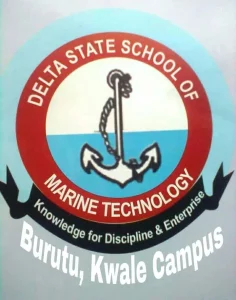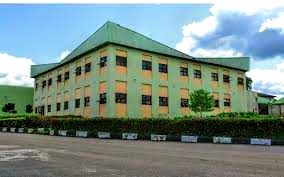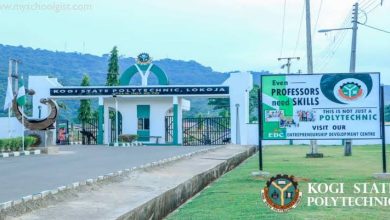Delta State School of Marine Technology School Fees, Admission Requirements, Hostel Accommodation and List of Courses Offered
Do you want to enrol at Delta State School of Marine Technology Burutu, but you don’t know if the course you want to study is being offererd by the School? How about knowing the necessary admission requirements you need to enrol into the school? This Article has been put together to guide you on everything you need to know about the school.
This article entails the School fees of the school, their admission requirements, Hostel Accommodation and list of courses offered.
About The School
The Delta State School of Marine Technology in Burutu is Nigeria’s premier institution for training seafarers and marine engineers. Founded in 1982, the school offers various programs to prepare students for careers on ships and in ports.
So if you have a passion for life at sea, this school is a great place to set sail on an exciting new career! The programs provide the skills and sea time needed to become an officer, and open the door to opportunities in the global maritime sector.

Delta State School of Marine Technology School Fees
As a state-run technical school, the Delta State School of Marine Technology aims to provide affordable and accessible education for students. Tuition fees at the school are highly subsidized by the state government to make this specialized education available to students from all backgrounds.
The total fees for the two-year marine engineering or nautical science diploma programs are around ₦250,000 per year. This includes tuition, registration, and examination fees. Additional fees may apply for boarding, medical insurance, uniforms, and extracurricular activities. Students can apply for scholarships and loans to help cover the costs.
Delta State School of Marine Technology Admission Requirements
To enroll in the Delta State School of Marine Technology, you’ll need to meet some basic requirements. Don’t worry, the admission criteria are quite straightforward.
Educational Requirements
You must have completed secondary school education. While not mandatory, subjects like mathematics, physics, chemistry, English and biology will provide a solid foundation for the marine engineering program.
Age Requirement
Applicants must be at least 18 years of age to enroll in the marine engineering courses. Some programs may have additional age requirements, so check with the school for details.
Medical Fitness
As a marine engineering student, you must meet certain medical standards to ensure you are physically and mentally fit to pursue a career at sea. This includes having good eyesight, hearing, and physical mobility, as well as being free of conditions like epilepsy or frequent seizures that could impact shipboard safety. You will need to pass a medical exam to verify your fitness.
Application Submission
To apply, you will need to submit an application form, copies of your educational qualifications like WAEC, NECO or GCE O’Level results, a copy of your birth certificate, and a non-refundable application fee.
Delta State School of Marine Technology Hostel Accommodation
As a student at Delta State School of Marine Technology, you’ll call the student hostels your home away from home during the academic year. The hostels provide basic but comfortable accommodation, with options for single, double or quad rooms so you can choose what suits you best.
Delta State School of Marine Technology List of Courses Offered
The Delta State School of Marine Technology offers a variety of courses to prepare you for a career at sea.
Deck Officer Program
Courses in this program include:
- Principles of Navigation: Learn essential navigation skills like chart plotting, position fixing, and voyage planning.
- Ship Stability and Construction: Understand how ships work and what keeps them afloat. Study ship terminology, hull designs, and the forces that affect stability.
- Cargo Handling and Stowage: Gain the knowledge and skills to properly handle and stow cargo, an important duty for Deck Officers. Learn about different types of cargo and how to distribute weight.
Engineer Program
Major courses include:
- Marine Engineering: Study diesel engines, pumps, electrical systems, refrigeration, and more. Learn how to operate, maintain, and repair all equipment on board.
- Automation and Control Engineering: Examine automated monitoring and control systems for critical ship functions. Programmable Logic Controllers (PLCs) and distributed control systems are covered.
- Workshop Skills: Develop hands-on skills for machine shop work, welding, pipe fitting, and other tasks necessary to service and repair ship equipment and systems.
Conclusion
In addition to these programs, the school offers courses in maritime law, first aid, firefighting, and maritime security to meet international certification requirements. The curriculum provides a well-rounded education for a successful career sailing the high seas.
FAQs
What degrees or certifications are offered?
Delta State School of Marine Technology offers several programs for those interested in a career on the high seas. You can earn a certificate, diploma, or associate’s degree in areas like:
- Marine Engineering
- Nautical Science
- Maritime Transportation
These programs provide the necessary training and certifications to work as a deck officer, engineering officer, or in ship operations and management roles.
What opportunities are available after graduating?
With a degree or certification from Delta State School of Marine Technology, you’ll be prepared for a rewarding career in the maritime industry. Graduates go on to work on cargo ships, cruise lines, tugboats, and in port operations all over the world. Specific roles may include:
- Deck Officer: Responsible for navigation, cargo, and crew. Can advance to Captain.
- Engineering Officer: Operates and maintains the ship’s engines, generators, and other systems.
- Cargo Specialist: Manages the loading, unloading, and securing of cargo and freight.
- Port Operations: Coordinates the flow of vessels and cargo in harbors and ports.








